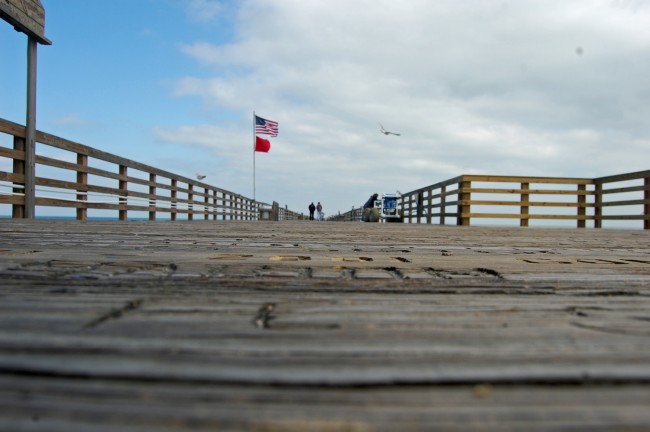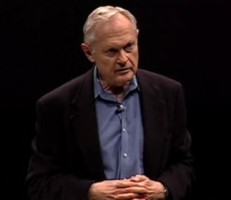
Today’s Live Wire: Quick Links
- The Tampa Bay Times’s Hard Times
- Orlando’s 1st Natural Gas Station
- Police Brutality in Hollywood, Fla.
- Washington D.C. Decriminalizes Pot
- Sherwin B. Nuland, “How We Die” Author, Dead at 83
- Solitary Confinement: Ineffective, Cruel, Usual
- Mozart’s Kiss My Ass Canon in B Flat
- Today’s Limmerick (Salman Rushdie)
![]()
 Most newspapers aren’t worth mourning as they continue to sink into mediocrity and pointlessness. Not so the former St. Petersbvurg Times, now the Tampa Bay Times. From its competitor, the Tampa Tribune: “[T]he St. Petersburg-based paper’s financial records, loan documents and real estate transactions paint a picture of a shrinking company under increasing financial strain. Revenue at the Times and its sister publications is half what it was five years ago, and the paper has been selling assets around the region. More recently, the newspaper took out a $28 million loan, backed by its headquarters and other property — due in December 2016. […] In July 2009, the Times started selling assets to raise cash for itself. The Times sold the publication Congressional Quarterly, in part to “extinguish its debt,” Times officials said. (The Wall Street Journal cited unnamed sources estimating the price was about $100 million.) Four months later, the Times sold niche magazine Governing for an undisclosed sum to e.Republic, a Sacramento, Calif. company with ties to the Church of Scientology. The Times was able to pay off a $35 million mortgage from Bank of America in May 2011, and yet the paper started selling more properties. In October 2011, the Times began a round of layoffs “to lower our costs in this terrible economy,” according to a memo sent to employees by Editor Neil Brown, and sold a news bureau building in Clearwater to the City of Clearwater for $2.2 million. Then it sold a Pinellas County shopping plaza to a Walmart affiliate for $1 million. The most rapid-fire transactions came in 2012. The Times announced a deal in February 2012 to sell an employee parking lot to an apartment developer, saying it had shed so many employees it no longer needed so much parking. […] Though the Times changed its name from the St. Petersburg Times to “The Tampa Bay Times,” commercial real estate advertisements show the Times is trying to unload properties around that region. The Times is trying to lease out half a news bureau building in Brooksville that it built only 10 years ago. And the Times is also trying to sell a news bureau and production building in Port Richey, 8.5 acres included. And it is trying to lease out up to 30,000 square feet of unused space in its headquarters. Meanwhile, there’s less revenue. In 2009, revenue for all of the company’s publishing interests was $274 million, according to Poynter’s most recent tax filings. Then it fell to $159 million in 2010, then fell to $151 million in 2011, and flattened out at $151 million in 2012.” The full story.
Most newspapers aren’t worth mourning as they continue to sink into mediocrity and pointlessness. Not so the former St. Petersbvurg Times, now the Tampa Bay Times. From its competitor, the Tampa Tribune: “[T]he St. Petersburg-based paper’s financial records, loan documents and real estate transactions paint a picture of a shrinking company under increasing financial strain. Revenue at the Times and its sister publications is half what it was five years ago, and the paper has been selling assets around the region. More recently, the newspaper took out a $28 million loan, backed by its headquarters and other property — due in December 2016. […] In July 2009, the Times started selling assets to raise cash for itself. The Times sold the publication Congressional Quarterly, in part to “extinguish its debt,” Times officials said. (The Wall Street Journal cited unnamed sources estimating the price was about $100 million.) Four months later, the Times sold niche magazine Governing for an undisclosed sum to e.Republic, a Sacramento, Calif. company with ties to the Church of Scientology. The Times was able to pay off a $35 million mortgage from Bank of America in May 2011, and yet the paper started selling more properties. In October 2011, the Times began a round of layoffs “to lower our costs in this terrible economy,” according to a memo sent to employees by Editor Neil Brown, and sold a news bureau building in Clearwater to the City of Clearwater for $2.2 million. Then it sold a Pinellas County shopping plaza to a Walmart affiliate for $1 million. The most rapid-fire transactions came in 2012. The Times announced a deal in February 2012 to sell an employee parking lot to an apartment developer, saying it had shed so many employees it no longer needed so much parking. […] Though the Times changed its name from the St. Petersburg Times to “The Tampa Bay Times,” commercial real estate advertisements show the Times is trying to unload properties around that region. The Times is trying to lease out half a news bureau building in Brooksville that it built only 10 years ago. And the Times is also trying to sell a news bureau and production building in Port Richey, 8.5 acres included. And it is trying to lease out up to 30,000 square feet of unused space in its headquarters. Meanwhile, there’s less revenue. In 2009, revenue for all of the company’s publishing interests was $274 million, according to Poynter’s most recent tax filings. Then it fell to $159 million in 2010, then fell to $151 million in 2011, and flattened out at $151 million in 2012.” The full story.
See Also:
- Warren Buffett Loves Newspaper Paywalls
- Heist in Print: How Newspapers Sold Their Soul to Business Brigands
- Palm Coast Data Parent Warns Grimly: Don’t Expect “Profitability in Near Term Or at All”
- Garage Sale: NYT Sells 16 Papers To News- Journal For Less Than $10 Million Apiece
- Times no longer a ‘viable’ source for support, Poynter Institute says
- Are Alt Weeklies Over?
Orlando’s 1st Natural Gas Station
 From the Sentinel: “Welcome to Orlando’s first station open to the public that sells natural gas for cars and trucks. To be clear, it’s not gasoline, the flammable liquid most cars run on. It’s a fuel like propane that barbecue grills use, and it’s a lot cheaper than gasoline. Nationally, natural gas for highway use is about 40 percent cheaper than gasoline, said Michael Birk, fleet sustainability manager for Frito-Lay Inc. That’s why the snack maker has been embracing the stuff in a big way nationally and why it brought a station to Orlando. The company has called on vendors to build stations that cost upward of a couple million dollars, agreeing to be the anchor customer at each of them. So far, the quest has resulted in 14 natural-gas stations near places where company trucks operate. In Orlando, the station is on Silver Star Road a few doors from Frito-Lay’s potato-chip plant. The opening of the plant finally put Orlando on the natural-gas map of places where cars and trucks equipped for the fuel can top off the tank and continue on their way. So far, there are 672 public stations in the U.S. and, with the opening of the one in Orlando, 12 in Florida, according to the U.S. Department of Energy. […] The Silver Star Road station has no sign, bathrooms or windshield squeegees. Pumping instructions are minimal, but if you’re running around in a truck or car able to burn natural gas, such as the factory-equipped Honda Civic GX, you likely will know how to pump the stuff. That was the case [last week], when the driver of a new garbage truck filled up with the equivalent of 18 gallons of gasoline, each of which cost $2.35.” The full story.
From the Sentinel: “Welcome to Orlando’s first station open to the public that sells natural gas for cars and trucks. To be clear, it’s not gasoline, the flammable liquid most cars run on. It’s a fuel like propane that barbecue grills use, and it’s a lot cheaper than gasoline. Nationally, natural gas for highway use is about 40 percent cheaper than gasoline, said Michael Birk, fleet sustainability manager for Frito-Lay Inc. That’s why the snack maker has been embracing the stuff in a big way nationally and why it brought a station to Orlando. The company has called on vendors to build stations that cost upward of a couple million dollars, agreeing to be the anchor customer at each of them. So far, the quest has resulted in 14 natural-gas stations near places where company trucks operate. In Orlando, the station is on Silver Star Road a few doors from Frito-Lay’s potato-chip plant. The opening of the plant finally put Orlando on the natural-gas map of places where cars and trucks equipped for the fuel can top off the tank and continue on their way. So far, there are 672 public stations in the U.S. and, with the opening of the one in Orlando, 12 in Florida, according to the U.S. Department of Energy. […] The Silver Star Road station has no sign, bathrooms or windshield squeegees. Pumping instructions are minimal, but if you’re running around in a truck or car able to burn natural gas, such as the factory-equipped Honda Civic GX, you likely will know how to pump the stuff. That was the case [last week], when the driver of a new garbage truck filled up with the equivalent of 18 gallons of gasoline, each of which cost $2.35.” The full story.
See Also:
- Surprise: Palm Coast Hints at Building Its Own Natural Gas Fueling Facility in the Future
- Florida Is 6th Worst Toxic Polluter from Coal-Fired Power Plants Despite Natural Gas Gains
Police Brutality in Hollywood, Fla.
 From the Sun-Sentinel: “A damning audit of the Hollywood Police Department calls for sweeping changes to the way the agency handles incidents involving use of force, saying those cases have been significantly underreported. […] Chief Frank Fernandez promised to turn the department around after being named Hollywood’s top cop in mid-August. […] The audit says the department’s police reports concerning use of force are incomplete, lack clarity and do not provide an accurate picture of events, making it difficult for supervisors to determine whether an officer’s actions were justifiable. In many cases, supervisors are trying to figure out what happened based on a scanty police report, since they typically are not called to the scene, the consultants found. […] Police agencies set guidelines on how much force their officers may use in any given situation, escalating from verbal commands to physical takedowns, the use of pepper spray and Tasers and, finally, lethal force. The Hollywood Police Department fails to make clear to its officers that force should not be used as a means of punishment or interrogation and also fails to say that excessive force is not tolerable within the agency, Gruber wrote. One interview revealed that a supervisor is sometimes not notified for hours or even days that a use-of-force incident even occurred, let alone needed investigation, Gruber wrote. Another supervisor said the department would investigate a use-of-force incident only if there was a weapon, injury or complaint. In one incident, a Hollywood K-9 officer tried to stop a bicyclist because he was riding without a light. When the bicyclist refused to stop, the officer grabbed at the man’s shirt, then fired his Taser to no effect, the audit says. The bicyclist hid from the officer. When he wouldn’t come out of hiding, the cop released his dog, which bit the bicyclist. The case should have been referred to Internal Affairs, Gruber wrote.” The full story.
From the Sun-Sentinel: “A damning audit of the Hollywood Police Department calls for sweeping changes to the way the agency handles incidents involving use of force, saying those cases have been significantly underreported. […] Chief Frank Fernandez promised to turn the department around after being named Hollywood’s top cop in mid-August. […] The audit says the department’s police reports concerning use of force are incomplete, lack clarity and do not provide an accurate picture of events, making it difficult for supervisors to determine whether an officer’s actions were justifiable. In many cases, supervisors are trying to figure out what happened based on a scanty police report, since they typically are not called to the scene, the consultants found. […] Police agencies set guidelines on how much force their officers may use in any given situation, escalating from verbal commands to physical takedowns, the use of pepper spray and Tasers and, finally, lethal force. The Hollywood Police Department fails to make clear to its officers that force should not be used as a means of punishment or interrogation and also fails to say that excessive force is not tolerable within the agency, Gruber wrote. One interview revealed that a supervisor is sometimes not notified for hours or even days that a use-of-force incident even occurred, let alone needed investigation, Gruber wrote. Another supervisor said the department would investigate a use-of-force incident only if there was a weapon, injury or complaint. In one incident, a Hollywood K-9 officer tried to stop a bicyclist because he was riding without a light. When the bicyclist refused to stop, the officer grabbed at the man’s shirt, then fired his Taser to no effect, the audit says. The bicyclist hid from the officer. When he wouldn’t come out of hiding, the cop released his dog, which bit the bicyclist. The case should have been referred to Internal Affairs, Gruber wrote.” The full story.
See Also:
- In an Unusually Brutal Arrest, a Palm Coast Woman Is Charged With Child Abuse Over Minor Pot Possession
- Rarely Punished, Guards May Be Responsible for Half of Sexual Assaults in Prisons and Jails
- Yet Another Florida Brutality: Black, 60, Unarmed, and Shot 15 Times By Cops
Washington D.C. Decriminalizes Pot
 From the Washington Post: “Possessing marijuana and smoking it in the privacy of one’s home would no longer be criminal offenses in the nation’s capital under a bill passed Tuesday by the D.C. Council, putting the District at the forefront of a simmering national debate over decriminalization. Mayor Vincent C. Gray (D) intends to sign the bill, which would partially decriminalize pot by imposing civil fines rather than jail time for most offenses. The District joins 17 states that have taken similar action but doesn’t go as far as Colorado or Washington state, where voters have legalized the sale and taxation of marijuana. The District also stopped short of legalizing public smoking — a decision influenced by the input of police officials, parents and others who remain unconvinced that full decriminalization is a good step for the city. The District’s unique rules of governance require the bill to sit before a congressional panel for 60 days before it becomes law, but several advocates said they don’t expect federal lawmakers to intervene. More broadly, advocates celebrated the 10 to 1 council vote as the latest reflection of growing mainstream support for recreational marijuana use. Their cheers were muted only by concerns that the council didn’t go far enough to reverse the city’s history of disproportionately arresting African Americans on drug charges. […] By playing out in the nation’s capital, the drama highlights the persistent conflict that decriminalization creates with federal law. It remains unclear how overlapping local and federal jurisdictions will affect enforcement, particularly in national parks. Someone could be arrested under federal law, for instance, for possession on the Mall. Elsewhere in the city, the penalty for possession of up to an ounce would drop to a fine of $25 — smaller than in any state except Alaska. Consumption in private residences would draw the same fine, unless in public housing, which is governed by federal law. The bill would equate smoking marijuana in public to toting an open can of beer; a misdemeanor with a maximum penalty of $500 and up to six months in jail, down from a potential $1,000 fine and one-year jail sentence. Across the country, decriminalization efforts have been promoted primarily as an expansion of civil liberties meant to frame recreational pot use as a personal choice with few societal consequences and little need for government oversight.” The full story.
From the Washington Post: “Possessing marijuana and smoking it in the privacy of one’s home would no longer be criminal offenses in the nation’s capital under a bill passed Tuesday by the D.C. Council, putting the District at the forefront of a simmering national debate over decriminalization. Mayor Vincent C. Gray (D) intends to sign the bill, which would partially decriminalize pot by imposing civil fines rather than jail time for most offenses. The District joins 17 states that have taken similar action but doesn’t go as far as Colorado or Washington state, where voters have legalized the sale and taxation of marijuana. The District also stopped short of legalizing public smoking — a decision influenced by the input of police officials, parents and others who remain unconvinced that full decriminalization is a good step for the city. The District’s unique rules of governance require the bill to sit before a congressional panel for 60 days before it becomes law, but several advocates said they don’t expect federal lawmakers to intervene. More broadly, advocates celebrated the 10 to 1 council vote as the latest reflection of growing mainstream support for recreational marijuana use. Their cheers were muted only by concerns that the council didn’t go far enough to reverse the city’s history of disproportionately arresting African Americans on drug charges. […] By playing out in the nation’s capital, the drama highlights the persistent conflict that decriminalization creates with federal law. It remains unclear how overlapping local and federal jurisdictions will affect enforcement, particularly in national parks. Someone could be arrested under federal law, for instance, for possession on the Mall. Elsewhere in the city, the penalty for possession of up to an ounce would drop to a fine of $25 — smaller than in any state except Alaska. Consumption in private residences would draw the same fine, unless in public housing, which is governed by federal law. The bill would equate smoking marijuana in public to toting an open can of beer; a misdemeanor with a maximum penalty of $500 and up to six months in jail, down from a potential $1,000 fine and one-year jail sentence. Across the country, decriminalization efforts have been promoted primarily as an expansion of civil liberties meant to frame recreational pot use as a personal choice with few societal consequences and little need for government oversight.” The full story.
See Also:
- Pam Bondi’s Pot Problem
- Politicians’ Pot Dilemma: Whether To Inhale Florida’s Medical Marijuana Joint
- Eric Holder Takes on the “War on Drugs,” Mandatory Sentences and Epidemic Imprisonment Rates
Sherwin B. Nuland, “How We Die” Author, Dead at 83
 From the Times obituary: “Dr. Sherwin B. Nuland, a surgeon and author who drew on more than 35 years in medicine and a childhood buffeted by illness in writing “How We Die,” an award-winning book that sought to dispel the notion of death with dignity and fueled a national conversation about end-of-life decisions, died on Monday at his home in Hamden, Conn. He was 83. The cause was prostate cancer, his daughter Amelia Nuland said. To Dr. Nuland, death was messy and frequently humiliating, and he believed that seeking the good death was pointless and an exercise in self-deception. He maintained that only an uncommon few, through a lucky confluence of circumstances, reached life’s end before the destructiveness of dying eroded their humanity. “I have not seen much dignity in the process by which we die,” he wrote. “The quest to achieve true dignity fails when our bodies fail.” In “How We Die, ” published in 1994, Dr. Nuland described in frank detail the processes by which life succumbs to violence, disease or old age. Arriving amid an intense moral and legal debate over physician-assisted suicide — perhaps the ultimate manifestation of the concept of a dignified death — the book tapped into a deep national desire to understand the nature of dying, which, as Dr. Nuland observed, increasingly took place behind the walls of the modern hospital. It won a National Book Award. Dr. Nuland wrote that his intention was to demythologize death, making it more familiar and therefore less frightening, so that the dying might approach decisions regarding their care with greater knowledge and more reasonable expectations. The issue has only intensified since the book was published, and has been discussed and debated in the medical world, on campuses, in the news media and among politicians and government officials engaged in health care policy. “The final disease that nature inflicts on us will determine the atmosphere in which we take our leave of life,” he wrote, “but our own choices should be allowed, insofar as possible, to be the decisive factor in the manner of our going.” Beyond its descriptions of ruptured embolisms, spreading metastases and bodily functions run amok, “How We Die” was a criticism of a medical profession that saw death as an enemy to be engaged, frequently beyond the point of futility.” The full obit.
From the Times obituary: “Dr. Sherwin B. Nuland, a surgeon and author who drew on more than 35 years in medicine and a childhood buffeted by illness in writing “How We Die,” an award-winning book that sought to dispel the notion of death with dignity and fueled a national conversation about end-of-life decisions, died on Monday at his home in Hamden, Conn. He was 83. The cause was prostate cancer, his daughter Amelia Nuland said. To Dr. Nuland, death was messy and frequently humiliating, and he believed that seeking the good death was pointless and an exercise in self-deception. He maintained that only an uncommon few, through a lucky confluence of circumstances, reached life’s end before the destructiveness of dying eroded their humanity. “I have not seen much dignity in the process by which we die,” he wrote. “The quest to achieve true dignity fails when our bodies fail.” In “How We Die, ” published in 1994, Dr. Nuland described in frank detail the processes by which life succumbs to violence, disease or old age. Arriving amid an intense moral and legal debate over physician-assisted suicide — perhaps the ultimate manifestation of the concept of a dignified death — the book tapped into a deep national desire to understand the nature of dying, which, as Dr. Nuland observed, increasingly took place behind the walls of the modern hospital. It won a National Book Award. Dr. Nuland wrote that his intention was to demythologize death, making it more familiar and therefore less frightening, so that the dying might approach decisions regarding their care with greater knowledge and more reasonable expectations. The issue has only intensified since the book was published, and has been discussed and debated in the medical world, on campuses, in the news media and among politicians and government officials engaged in health care policy. “The final disease that nature inflicts on us will determine the atmosphere in which we take our leave of life,” he wrote, “but our own choices should be allowed, insofar as possible, to be the decisive factor in the manner of our going.” Beyond its descriptions of ruptured embolisms, spreading metastases and bodily functions run amok, “How We Die” was a criticism of a medical profession that saw death as an enemy to be engaged, frequently beyond the point of futility.” The full obit.
See Also:
Solitary Confinement: Ineffective, Cruel, Very Usual
 From Smithsonian: “Although the practice has been largely discontinued in most countries, it’s become increasingly routine over the past few decades within the American prison system. Once employed largely as a short-term punishment, it’s now regularly used as way of disciplining prisoners indefinitely, isolating them during ongoing investigations, coercing them into cooperating with interrogations and even separating them from perceived threats within the prison population at their request. As the number of prisoners in solitary has exploded, psychologists and neuroscientists have attempted to understand the ways in which a complete lack of human contact changes us over the long term. According to a panel of scientists that recently spoke at the American Association for the Advancement of Science’s annual meeting in Chicago, research tells us that solitary is both ineffective as a rehabilitation technique and indelibly harmful to the mental health of those detained. “The United States, in many ways, is an outlier in the world,” said Craig Haney, a psychologist at UC Santa Cruz who’s spent the last few decades studying the mental effects of the prison system, especially solitary confinement. “We really are the only country that resorts regularly, and on a long-term basis, to this form of punitive confinement. Ironically, we spend very little time analyzing the effects of it.” Exact numbers are hard to come by, but based on a wide swath of censuses, it’s estimated that between 80,000 and 81,000 prisoners are in some form of solitary confinement nationwide. In contrast to stereotypes of isolated prisoners as the most dangerous criminals, Haney estimates that a third of isolated prisoners are mentally ill, and a disproportionate number are minorities, partly because alleged gang membership is grounds for placing a prisoner in solitary indefinitely. […] A majority of those surveyed experienced symptoms such as dizziness, heart palpitations, chronic depression, while 41 percent reported hallucinations, and 27 percent had suicidal thoughts—all levels significantly higher than those of the overall prison populations.” The full story.
From Smithsonian: “Although the practice has been largely discontinued in most countries, it’s become increasingly routine over the past few decades within the American prison system. Once employed largely as a short-term punishment, it’s now regularly used as way of disciplining prisoners indefinitely, isolating them during ongoing investigations, coercing them into cooperating with interrogations and even separating them from perceived threats within the prison population at their request. As the number of prisoners in solitary has exploded, psychologists and neuroscientists have attempted to understand the ways in which a complete lack of human contact changes us over the long term. According to a panel of scientists that recently spoke at the American Association for the Advancement of Science’s annual meeting in Chicago, research tells us that solitary is both ineffective as a rehabilitation technique and indelibly harmful to the mental health of those detained. “The United States, in many ways, is an outlier in the world,” said Craig Haney, a psychologist at UC Santa Cruz who’s spent the last few decades studying the mental effects of the prison system, especially solitary confinement. “We really are the only country that resorts regularly, and on a long-term basis, to this form of punitive confinement. Ironically, we spend very little time analyzing the effects of it.” Exact numbers are hard to come by, but based on a wide swath of censuses, it’s estimated that between 80,000 and 81,000 prisoners are in some form of solitary confinement nationwide. In contrast to stereotypes of isolated prisoners as the most dangerous criminals, Haney estimates that a third of isolated prisoners are mentally ill, and a disproportionate number are minorities, partly because alleged gang membership is grounds for placing a prisoner in solitary indefinitely. […] A majority of those surveyed experienced symptoms such as dizziness, heart palpitations, chronic depression, while 41 percent reported hallucinations, and 27 percent had suicidal thoughts—all levels significantly higher than those of the overall prison populations.” The full story.
See Also:
- New York Rethinks Solitary Confinement
- My Night in Solitary
- Rarely Punished, Guards May Be Responsible for Half of Sexual Assaults in Prisons and Jails
Mozart’s Kiss My Ass Canon in B Flat
From Mental Floss, where you can find several examples of Mozart’s dirty-minded music: “So what was up with Wolfgang’s potty mouth? Some believe Mozart had Tourette syndrome, although the diagnosis has been debunked time and time again. It’s more likely that the musical mastermind simply loved crude jokes—which wasn’t unusual for his time, anyway. Scatology was just as popular back then as it is today, although it was especially strong in Germanic culture. After printing the Bible, the next project on Johannes Gutenberg’s to-do list was a laxative timetable called a “Purgation Calendar.” Martin Luther—the same man who redefined Christianity—was brilliantly vulgar. “I resist the devil, and often it is with a fart that I chase him away,” is one of his tamer aphorisms. Goethe once used poop jokes to lash back at a critic. Mozart wasn’t any different. He cribbed most of these ribald lyrics from fashionable phrases that shared wide currency in his day.” Here it is, the ass-kissing, K231.
See Also:
- Mozart:Piano Concerto No. 21 in C major, K. 467
- Ben Webster’s Danny Boy
- So Long, Dave Brubeck (1920-2012)
Today’s Limmerick (Salman Rushdie)
The marriage of poor Kim Kardashian
Was krushed like a kar in a krashian.
Her Kris kried, “Not fair!
Why kan’t I keep my share?”
But Kardashian fell klean outa fashian.
–Salman Rushdie
Other Limericks:
- The One About Alice from Dallas
- The One About a Young Monk from Siberia
- The One About the Young Violinist From Rio
- Salman Rushdie’s Site
Live Wire Rewinds





























NortonSmitty says
I cannot beleive Salman Rushdie
Who wrote Midnights Children one day,
Would stoop to commment
on a fat-assed no-talent
Kardashian bitch expose’.
Pierre Tristam says
Smitty, Rushdie has stooped very far since the days of The Satanic Verses, Midnight’s Children and The Moor’s Last Sigh. He’s become a celebrity whore who can’t help name-dropping his conquests and dance partners. He confesses the fall in his own Joseph Anton, the memoir of his years in the Ayatollah’s fatwa captivity, which ping-pongs between displays of immense talents and fortitude and the rank, embarrassing self-absorption of an eternal adolescent.
NortonSmitty says
I refuse to let him sink any lower. One more in depth interview with Time, HuffPo or Bill Mahler and I’m gonna’ declare a Presbyterian Fatwa on him! And trust me, HE WILL NEVER GET A LOAN APPROVED AGAIN!!!
NortonSmitty says
OOPs, So good I had to post it twice! Maybe my best ever!